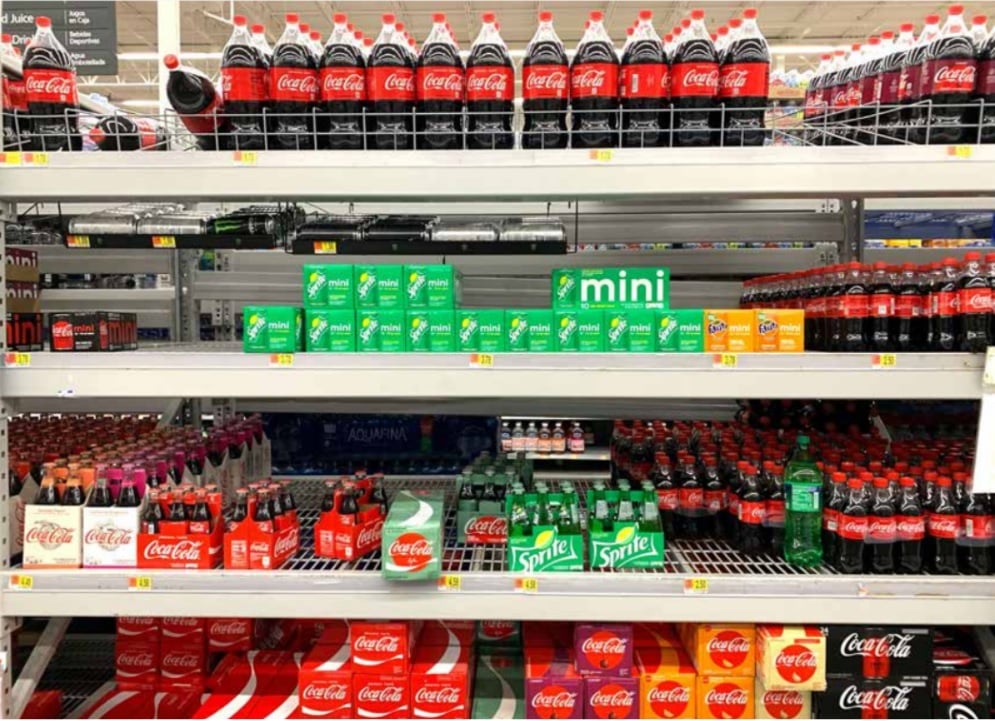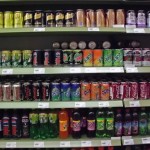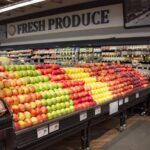
Many shoppers complain there only seem to be coupons available for unhealthy items. So could the solution be banning coupons for unhealthy items?
One advocacy group appears to believe so, at least when it comes to one specific unhealthy item.
The Center for Science in the Public Interest has released a report on the prevalence of soda and other sugary drink displays and promotions in grocery stores. Its inspection of more than a dozen Washington, DC-area grocery stores found that, “on average, sugar-sweetened beverages appeared in roughly 30 locations and had nine price promotions within each grocery store.”
Its proposed solution? Cut back on the soda displays and promotions, and abolish coupons altogether for unhealthy drinks.
The recommendations come in a CSPI report entitled “Soda on Display.” “The ubiquity of sugary drinks in retail food outlets is a marketing tactic used to induce impulse purchases of unhealthy beverages,” the report reads. “This undermines shoppers’ best efforts to eat healthfully and feed their families well. Consumers should not be inundated from all sides when shopping for their families.”
While there are a number of culprits when it comes to unhealthy temptations, sugary drinks are particularly pernicious. The report cites federal research finding that sugary drinks are “the top source for added sugars in the United States.” And it’s not just soda – the report defines “sugary drinks” as any beverages with added caloric sweeteners, including energy drinks, sports drinks, juice, coffee, milk and tea.
“Given the link between excessive added sugar intake and diet-related disease,” the report goes on, “the continued aggressive promotion of sugary drinks in grocery stores presents a potential risk to the public’s health that can be remedied with new policies and in-store practices.”
Among the group’s recommended new policies – whether voluntary on the part of retailers, or mandated by state or local laws – are “limiting the placement of sugary drinks to a designated soda aisle,” and “eliminating manufacturer coupons that enable price promotions for sugary drinks.”
“Given the link between high added sugar intake and adverse health outcomes, it is not acceptable for companies to continue to aggressively market sugary drinks in grocery stores,” the report stated. When asked for comment, Coca-Cola, PepsiCo and Keurig Dr Pepper did not reply.
The CSPI is not the first group to call for abolishing soda coupons. The author of a 2014 medical journal article proposed outlawing coupons on the unhealthy fizzy drinks, likening the idea to bans on tobacco coupons and discounts. And in 2019, a group of California lawmakers proposed a statewide law banning soda coupons. “Big Soda subsidizes the cost of unhealthy sugary beverages,” one of the bill’s sponsors said. “Promotions such as manufacturer’s coupons are one key contributor to our public health epidemic.”
That bill didn’t become law. But one California community did successfully pass a “Healthy Checkout Aisle” ordinance last year. The city of Berkeley now requires checkout displays to feature only good-for-you items – sugary beverages, candy or other unhealthy treats will have to be sold somewhere else in the store.
The CSPI has also taken on grocery stores before, with one report calling grocery promotion practices “rigged” in favor of big food manufacturers, and another criticizing ads and price promotions online that are heavily skewed in favor of unhealthy items.
The group is now calling on health advocates to use its most recent report’s findings “to push for state and local policies that limit the placement and promotion of sugary drinks.” And it’s calling for future research to “evaluate the prevalence of placements and promotions for other product categories, such as candy and sweetened baked goods.”
So it may start with soda. But it may not end there.
“Research tells us that people want to eat healthily and want grocery stores to play a role in promoting community health,” CSPI senior policy scientist Sara John said in a statement. “Aggressive marketing of sugary drinks thwarts what consumers want and makes it harder to make healthier choices for themselves and their families.”
So if you don’t make healthy choices at the grocery store, health advocates may make them for you. Then when you observe that there just don’t seem to be as many coupons as there used to be – you’ll know why.
Image source: CSPI










